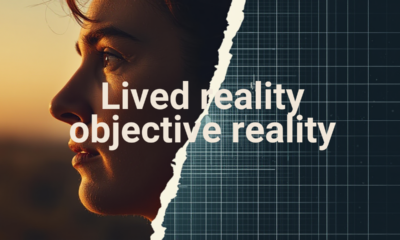Entertainment Today
Planet of the suicides
Planet of the Humans does indeed exppose the flaws, inconsistencies, and hypocricies of many environmentalists. But its message is still misanthropic.

Planet of the Humans. Exec. Prod. Michael Moore; Dir. Jeff Gibbs. Narrator: Jeff Gibbs. Huron Mountain Productions, 2020.
Planet of the obsolete
The film Planet of the Humans, as the late Ayn Rand might say, is an interesting document. It is the most refreshingly honest (i.e., straightforward) declaration of hostility to life this reviewer has viewed in years. To this reviewer’s knowledge, almost every other reviewer misses the point of the film. But it also suffers from a flaw that kills the case it tries to make. In its treatment of current technology, it was obsolete on the very day of its premiere.
The premise: humans are killing the planet
Jeff Gibbs, who directed, narrates the film. In it he spends most of his time decrying every solution anyone has put forward for the problems he describes. Halfway through the film, Gibbs makes his real point, and at film’s end he says it again. Which is: we humans are too many, and are doing too much for our own comfort. The planet can’t take the load. Thus the planet is like a terrarium in which an investigator has let a population of, say, mice, overflow.
So what does he propose we do about it? Throughout the film he has decried large companies—and who else has the resources to solve the problem. And he identifies the flaws in the solutions companies and activists alike have offered. But because he offers no solution, only one presents itself. And that is: a controlled, partial suicide. One that, one presumes, conveniently leaves him alive.
Testing the premise
Most conservative critics of Planet see only that Gibbs tests most solutions people offer, and finds them false. For example, biomass—meaning, back to burning wood—cannot work. We simply can’t grow trees fast enough to throw into the furnaces. This gets most of his attention, because so many liberal colleges and universities think biomass is their feel-good solution. Big activist clubs like the Sierra Club can’t seem to make up their minds whether to support or denounce it.
The solar and wind problem
Gibbs describes solar and wind power as inherently flawed for two reasons. First, one must build fast-starting power plants to take over when the sun goes down or the wind stops blowing. At the time of filming, coal, natural gas, or rarely, oil fuels these plants. Second, neither solar panel nor wind turbine will last. Replacing them takes energy—and here Gibbs charges that they take as much energy as they produce in their lifetimes.
But this key quote shows the obsolescence of Planet and Gibbs’ research. His interview subjects tell him the solar panels they’re working with are eight percent efficient. Today a typical photovoltaic panel is twenty percent efficient—or better. How could he miss that?
The peaker plant problem
Once only does Gibbs acknowledge the solution to the intermittency problem: store the energy somehow. But he laments the need to extract lithium and other “rare earth elements” from the ground. So if one can’t get away from mining, the problem remains. Not a word does he spare for whether the battery is more efficient than extracting and burning fuel. Nor about other techniques for storing energy—like pumping water into an upstream lake (“pumped hydroelectric power”), or dangling a heavy weight over a mine shaft and letting it down to produce power, or winching it up to store it.
Nor dare anyone mention nuclear power. Not only does it produce more power per unit mass today, but it can hold well until we have fusion power. Furthermore, with the storage techniques now avaiilable, one can run nuclear power at a higher base load and use the batteries to respond to changing demand.
The general problem: a desire to worship the planet
All these things illustrate one problem with Planet. Gibbs is criticizing obsolete solutions, or solutions on which engineers have made remarkable improvements. Indeed the most visionary engineer today, Elon Musk, rates only passing mention. Gibbs wants to say that Musk is just as bad as the loggers, the miners, the energy companies, and “billionaires.” That last is a class he seems to criticize merely for existing. In brutal fact, Gibbs wants his pound of flesh, and will give no one credit for decency.
Midway through Planet, another subject gives away the game. “We have a religion,” he says—and that religion is the worship of self. So Gibbs and his subject plump for a worship of the planet—and sacrificing everyone to it. Immediately after saying that, Gibbs decries the “sacrifice” of desert to the solar-power solution.
One part of the planet not like another
In decrying that last, Gibbs makes another mistake. Just as no two terrain types are alike, no two deserts are alike. The American Mojave is that Living Desert of Disney fame.
But the Sahara is dead, with dusty dunes dominating. Yet Gibbs treats them both alike.
Similarly, Gibbs treats all profits as evil. Are all profits good and honorable? No. Certainly not those that derive from fraud. Does Gibbs make a case to accuse some people of fraud? Yes. One should remember two points. First, educating people can stop fraud faster than can anything else. Second, profit can derive from honest trade. Long-lasting profit usually does.
Reaction to Planet
Almost predictably, conservatives have taken to Planet as validating many of their points. True enough, Planet exposes the flaws, inconsistencies, and hypocrisies of most environmental “solutions.” Craig Rucker at Committee for a Constructive Tomorrow has a typical reaction.
…you’ll love watching power company executives admit that their solar array, which would cover a football field, can only put out enough electricity to power ten homes, when the sun shines. To power the entire city of Lansing, Michigan, the array would have to be three miles by five miles! How’s that for a footprint? The last things the climate people want you to contemplate are “solar dead zones.”
This reviewer has already described the biomass problem. Rucker describes the “massive industry funding of the Sierra Club” and other such outfits.
Leftist reaction: take Planet down!
Those revelations proved more than the political left could stomach. They demanded that distributors and social media outlets take the film down. Marc Morano has the details—and the tweets.
But then—surprise—now an activist puts the film back up!
Protest and counter-protest
These tweets offer further instruction:
But here we have one reviewer who understands Jeff Gibbs and Michael Moore’s point: those two men are total misanthropes!
Have you ever wondered what would happen if a single species took over an entire planet? Maybe, they’re cute. Maybe, they’re clever – but, lack a certain, shall we say, self-restraint. What if they go too far? What if they go way, way, way, way, way too far? How would they know when it’s their time to go?
The sheer arrogance of that quote condemns Planet for the fault Whittaker Chambers famously—and mistakenly—found with Ayn Rand’s Atlas Shrugged:
From almost any page of Atlas Shrugged, a voice can be heard, from painful necessity, commanding: “To a gas chamber—go!”
Likewise, in almost every frame of Planet of the Humans, Jeff Gibbs, from painful necessity, commands:
To a gas chamber—go!
About the image
“Jabba the Gutt” by random payne is licensed under CC PDM 1.0
Terry A. Hurlbut has been a student of politics, philosophy, and science for more than 35 years. He is a graduate of Yale College and has served as a physician-level laboratory administrator in a 250-bed community hospital. He also is a serious student of the Bible, is conversant in its two primary original languages, and has followed the creation-science movement closely since 1993.
-

 Accountability2 days ago
Accountability2 days agoWaste of the Day: Principal Bought Lobster with School Funds
-

 Constitution2 days ago
Constitution2 days agoTrump, Canada, and the Constitutional Problem Beneath the Bridge
-

 Executive1 day ago
Executive1 day agoHow Relaxed COVID-Era Rules Fueled Minnesota’s Biggest Scam
-

 Civilization1 day ago
Civilization1 day agoThe End of Purple States and Competitive Districts
-

 Civilization5 days ago
Civilization5 days agoThe devil is in the details
-

 Civilization4 days ago
Civilization4 days agoThe Conundrum of President Donald J. Trump
-

 Executive4 days ago
Executive4 days agoTwo New Books Bash Covid Failures
-

 Executive4 days ago
Executive4 days agoThe Israeli Lesson Democrats Ignore at Their Peril















[…] an excuse to depopulate the planet, and to deindustrialize and even de-civilize. Michael Moore, in Planet of the Humans (2020), correctly points out what’s wrong with many environmental “solutions.” But then he […]
[…] an excuse to depopulate the planet, and to deindustrialize and even de-civilize. Michael Moore, in Planet of the Humans (2020), correctly points out what’s wrong with many environmental “solutions.” But then he […]
[…] Michael Moore (Roger and Me; Planet of the Humans) offered the Anti-Second Amendment in a tweet on […]